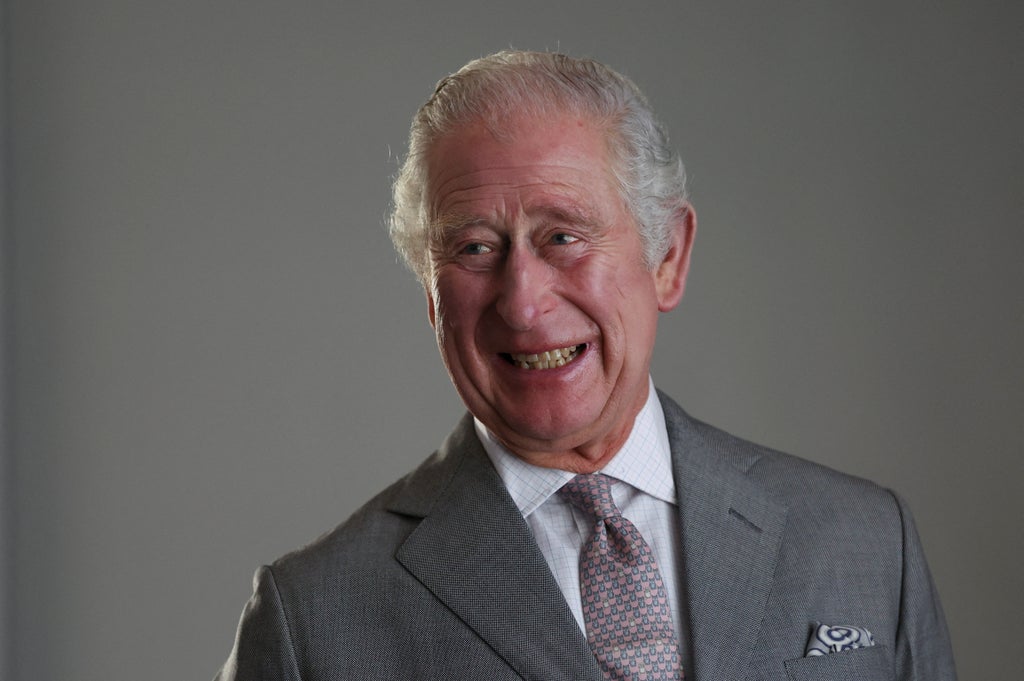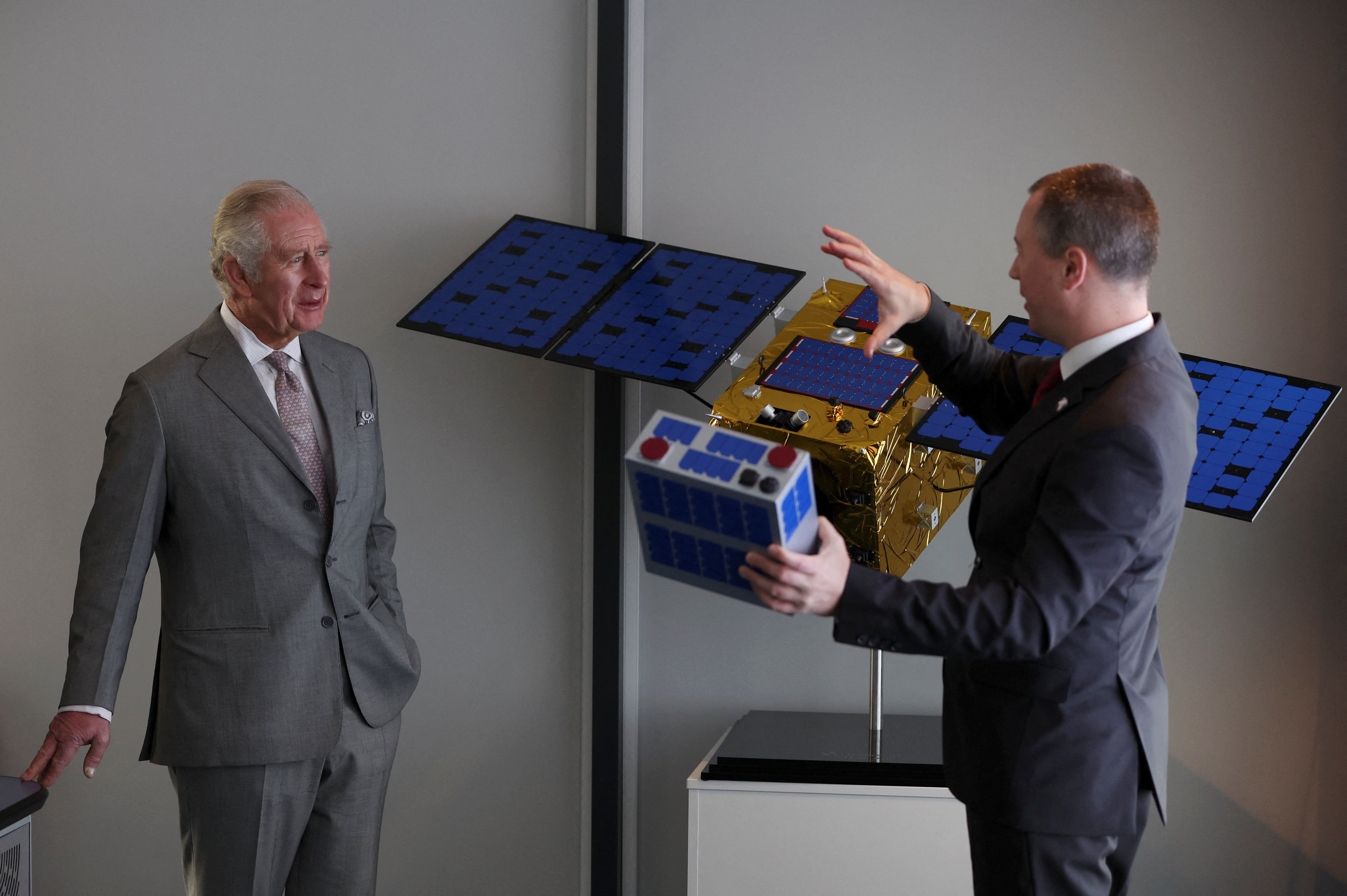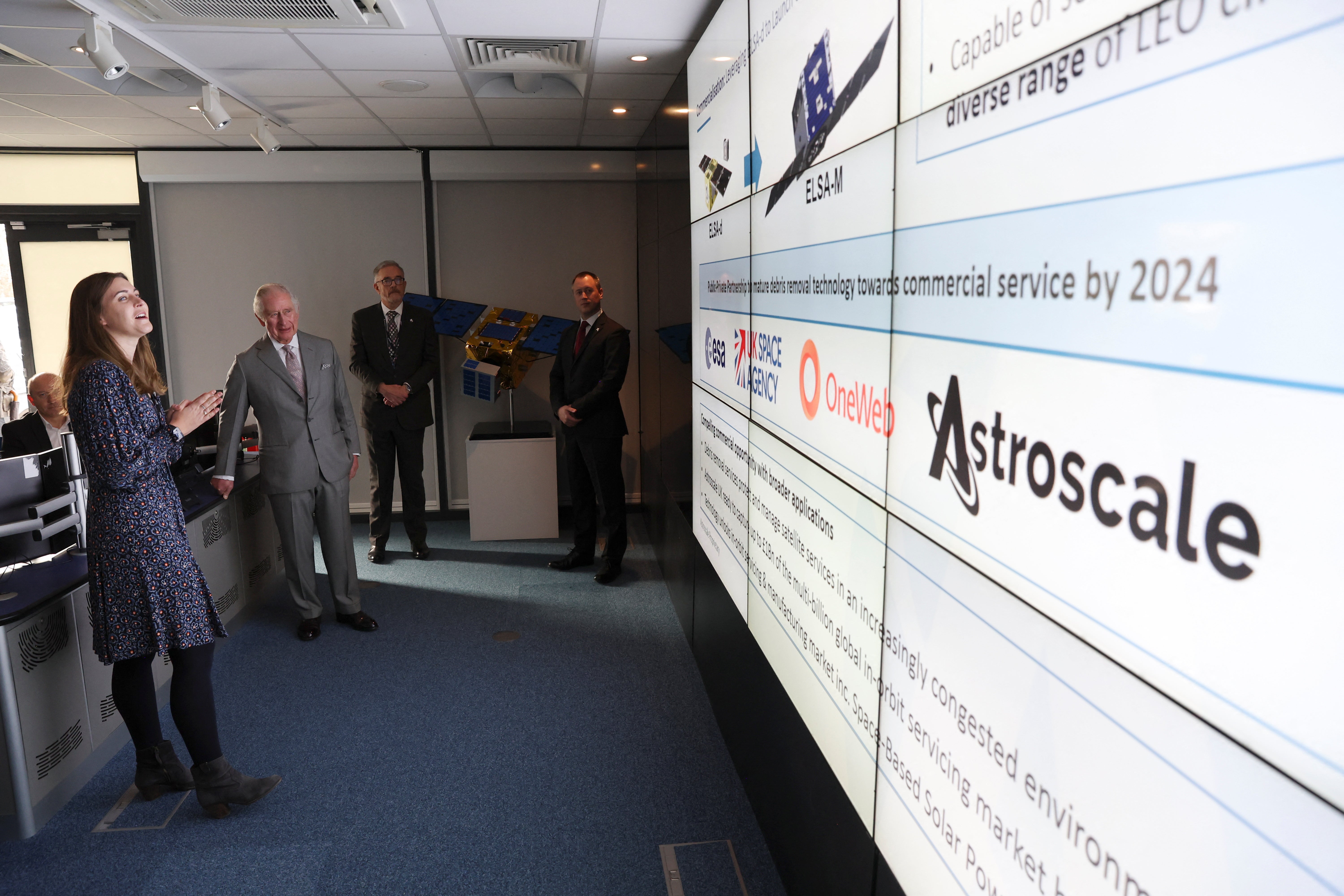
The Prince of Wales has suggested nations should sign up to an environmental management agreement for space after “making a mess of this planet”.
Charles’ comment came as he learnt about the UK’s leading role in helping to clear space junk orbiting the Earth – a new industry estimated to be worth billions.
He chatted to engineers from the private firm Astroscale which is pioneering new technology to capture defunct satellites with the aim of removing or repairing them, likened to “AA” breakdown cover.

Science Minister George Freeman joined the prince at the mission control of the company’s operations and announced the UK Space Agency was providing £1.7 million for 13 new projects to track and remove dangerous space debris.
When Charles later sat down with the minister and industry representatives including Paul Bate, chief executive of the UK Space Agency, he told them: “It just occurred while we’re making rather a mess of this planet, that it might be useful to have an environmental management agreement for space.”
The science minister said after the meeting: “Astroscale is a world leading technology platform for reducing very, very damaging space debris and helping companies make sure that when their satellites die they’re removed and brought back down to earth.
“There’s a huge commercial opportunity, as the sector evolves everyone will be required to have satellite maintenance and servicing contracts to show they’re not dumping rubbish in space and I think the UK could be a world leader in setting the standards and therefore the insurance market.”
Since the early days of space flight in the 1950s debris has been building up around the planet and it is estimated 330 million pieces, from obsolete satellites to spent rocket bodies and much smaller objects, are orbiting Earth.

They pose a threat to the increasing number of new satellites being launched each year which provide vital services, including communications and climate change monitoring.
Engineers paused their work during the royal visit to their base near Didcot in Oxfordshire to chat to the future king, and Harriet Brettle, Astroscale’s head of business analysis, told Charles they were aiming to commercialise their services by 2024.
She added: “With that we’re looking at providing services to satellite operators, if their satellites have failed on orbit we can be the AA, the breakdown cover, they call us up and we can go and remove their satellite safely for them.
“We’re looking at capturing a big chunk of the multi-billion dollar in-orbit servicing market by 2030.”
Astroscale has been progressively testing the ability of its satellite to capture another it blasted into space with in March 2021, and the next phase of trials will aim to capture real space debris.
The company’s managing director John Auburn stressed his fledgling industry needed an adequate policy framework from governments.
He said: “There’s a commercial market and government market but to open the market we need the right policy so that industry takes it seriously.
“It’s a sort of chicken and egg, so if we can open the market we can create a whole new environment that’s safe… so we go from a throwaway culture – launch and forget – to actually bringing down failed spacecraft”.







